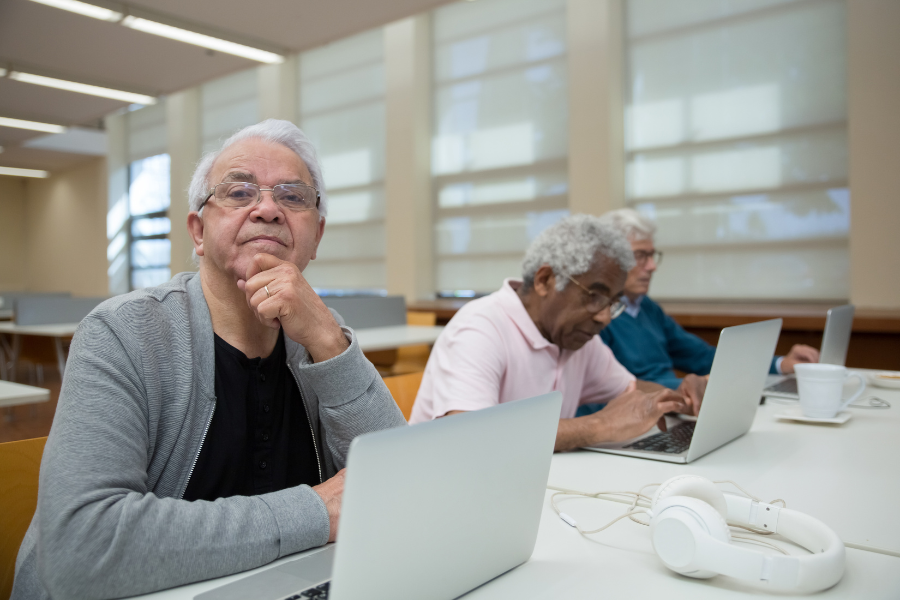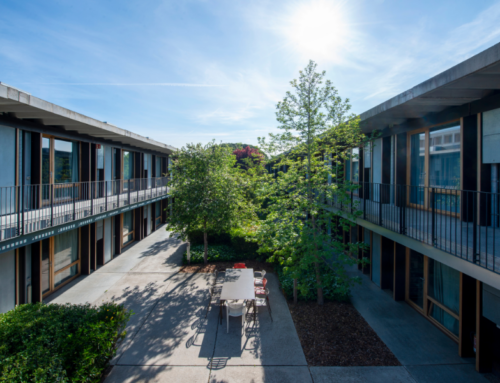What is the best age to study for a university degree? Although there is no right answer to this question, it is a key issue for many people who are wondering whether or not to take the plunge. Therefore, in this article we will talk about the advantages of starting a university degree at different stages of life and why it can be a great advantage to start later in life.
It is never too late to study for a university degree.
The answer to the question of which age is the best to study a university course is a complex one. The university is the place of worship par excellence. Historically, students from all over the world have gathered there to learn, to socialise, to ask questions and, above all, to grow. The university is a place for everyone, regardless of gender, nationality, physique and, much less, the age of each student.
It is for this reason that there is no age to study a university degree. Universities are places of reflection and learning and, for that reason, it is never too late. Moreover, the combination of different ages, experiences and points of view is what makes university such a special, emblematic and necessary place because there is no point in knowing where we are going if we do not know where we have come from.
What are the requirements for access to university for people over 25 years of age?

People over 25 years of age who want to enter university must pass the university entrance exam for people over 25 years of age, which is held once a year and is valid for an indefinite period of time. This test is aimed at those students who have not taken the Selectividad exams or who do not have university studies.
However, in order to sit the university entrance exam for the over-25s, students must meet the following requirements:
- Be 25 years old in the calendar year in which the exam is held.
- Not have passed the Selectividad or equivalent.
- Not be in possession of a higher technical qualification in vocational training, plastic arts and design or sports.
- Not hold any university qualification.
- Not have any qualifications or any other general requirements for university entrance.
Factors influencing the decision on age to study for a university degree
Deciding at what age to study for a university degree is a very personal decision that can vary according to different factors, as age is not the only determining factor.
- Personal and professional maturity: Maturity is key when it comes to starting a university degree. As a general rule, many students are still in the process of discovering their true interests. However, starting university later allows students to have clearer career goals, which can make career choice easier.
- Financial situation: This is another major factor that directly influences the age at which a student decides to start university. Those who decide to start university later may have more financial resources or access to specific scholarships for adult students.
- Previous work experience: Work experience directly influences the age decision to study for a university degree. Students with work experience gain a different perspective and focus on gaining new skills or studying to advance their careers. For many, studying at university and working at the same time is a very viable option to combine theoretical learning and apply it during their work experience.
- Educational alternatives: nowadays, university is more accessible than ever. However, there are different alternatives such as distance learning (online), evening courses, taking a Higher or Intermediate Level Training Cycle beforehand, etc. These options can often be the springboard for a student to later access a university degree.
When deciding when to start university, it is also important to think about what to do after university, as there are different possibilities to start your career path.

Why is the senior stage a good age to choose a university career?
A study by the Faculty of Social Education and Social Work, Pere Tarrés of the Ramon Llull University and Xarxa Vives of university students shows that senior education has a wide range of positive impacts on the physical and mental health of those enrolled. The main benefits are the following:
Dramatic memory improvement
Exercising the memory with new proposals and new information favors that it does not wear out and improves quickly. Continued memory work will determine a sudden improvement, reducing the risk of neurodegenerative diseases and improving the quality of life.
Enrollees lose their fears and complexes
The option of continuing their education gives students the courage to break down barriers, to want to be better and to improve themselves. It is the ideal option to rediscover themselves and fulfill an illusion. In addition, they establish new connections promoting a positive environment to improve their social life and opportunities for personal enrichment.
Reduce anxiety and depression
The increase in self-esteem has a direct positive influence on the character and outlook on life of the students and provides them with tools to manage and believe in their own personal fulfillment. The study highlights that many adult university students fulfill their lifelong dreams.
Overcoming traumatic situations
The study indicates that the emergence of new challenges prevents negative thoughts from the past from occupying an important place in their daily lives. New information and novelties act in a healing way on senior students. Studying at a more senior age allows them to overcome academic obstacles which generates an increase in self-confidence and allows them to recover and improve their emotional well-being.
Increasing receptivity to new technologies
Technology is advancing by leaps and bounds every day and it is essential that the entire population can keep up with this evolution so as not to feel excluded from society. Senior students have the opportunity to learn about new technologies, using tools that allow them to keep up to date. This not only allows them to develop professionally, but also benefits their integration in today’s society.

Universities are able to offer the tools and resources to all students, enriching each student’s personal experience. In addition, university cities like Barcelona offer endless opportunities for those looking for new experiences.
If you would like more information about Unihabit residences, you can contact us by calling 935 953 953 / 608 608 829 or writing to us at info@unihabit.com.





